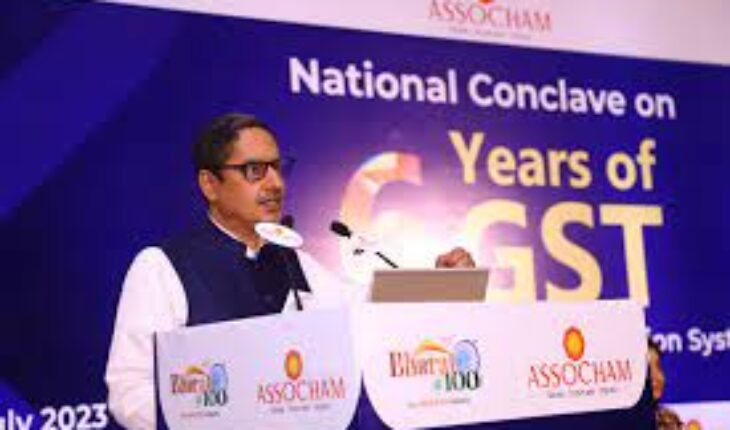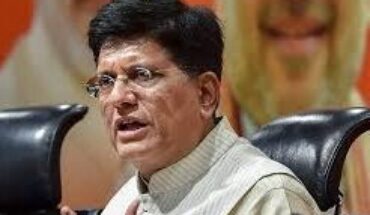New Delhi : We have embarked on a journey of one nation, one tax, one market and we need to continuously keep working towards addressing these problems that keep coming at the field level. Our tax revenues have been consistently clocking more than 1.6 lakh crore and we shall continue to grow because there are areas where revenues can still be tapped. We are looking at easing compliance, but at the same time, we are trying to see how we can bring in regularity of compliances and timely return filing and tax payment” said Shashank Priya, Special Secretary & Member (GST), CBIC at the National Conference on GST organised by ASSOCHAM.
“CBIC has taken a major decision to become a model two state, which means now we will not have our own back end system. We will be migrating to the back end system of GSTN because at the field level, there were problems regarding loss of data. We also felt that there will be a synergy between what the states and the center does if we are all working on one back-end system.
It may not be possible that everything can be addressed at a central level and ground level grievance redressal mechanism, state coordination committee meetings and mechanisms have been put in place to address problems that are arising in implementation of the some of the provisions of the law.” he added.
Pratik Jain, Chairman, National Council on Indirect Taxes, ASSOCHAM in his welcome address said, “GST is a tax which impacts all of us. GST collections have been good over the past few months, and we are likely to exceed our collection target for FY 24 . There is no doubt that GST has brought in structural simplicity with one law and uniform tax rates across the states. However, industry feels that the Government needs to be push ‘ease of doing business’ agenda hard now. More than legislative aspects, tax administration needs to be streamlined now. There is a need for stakeholders to come together and adopt a consultative approach as we move ahead “.
Ritesh Kanodia, Co-Chairman ASSOCHAM National Council on Indirect taxes focused on GST law which is constantly evolving and while there are certain challenges, we have also seen Government coming out with positive clarifications on some key issues e.g. ISD vs cross charge. Some important issues that however need immediate consideration is multiplicity of audits and the quantum of notices that are being issued, past issues where demands have been confirmed and interest paid however there is now a dispute on credit, better clarity on GST on corporate guarantees and need for a relaxation/ amnesty scheme for GSTR 2A-3B notices where law was not clear and there were also system issues. He further stressed that It was good to hear the Governments perspective on each of these issues and that they are being looked at proactively. While resolution may not be immediate, but the direction is to achieve ease of doing business by better use of technology.





